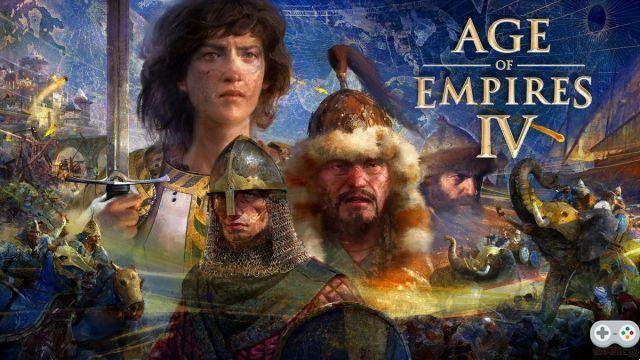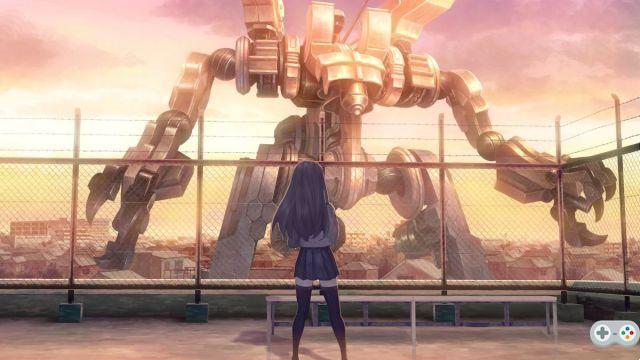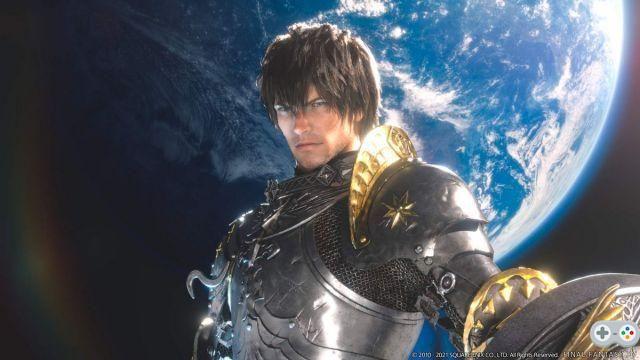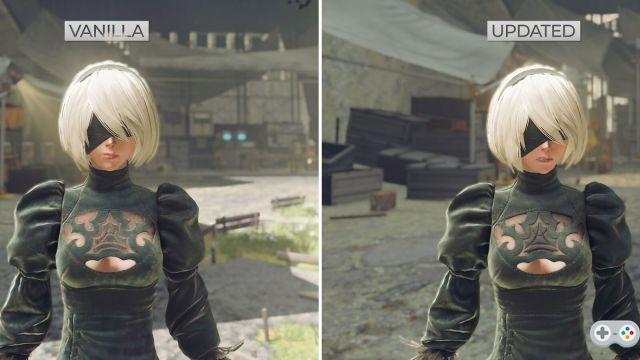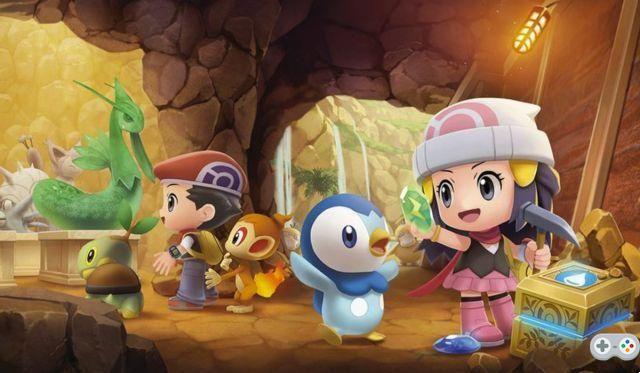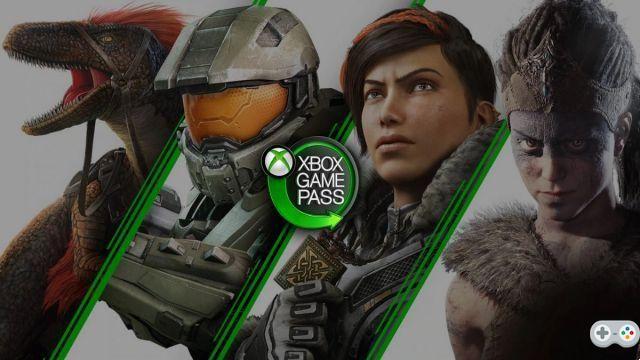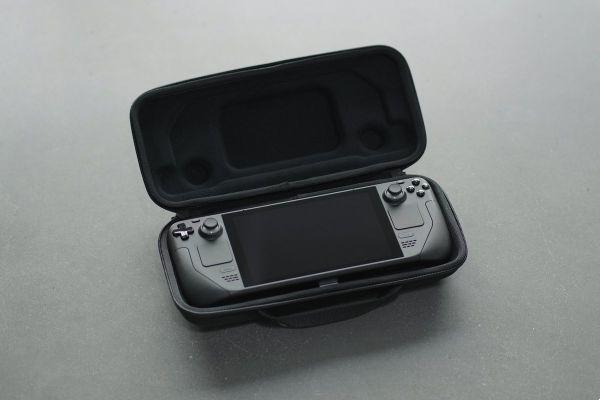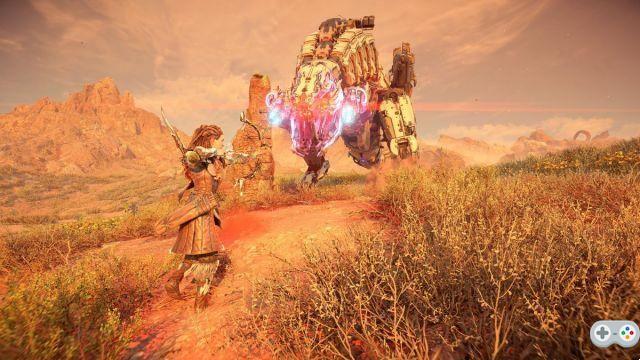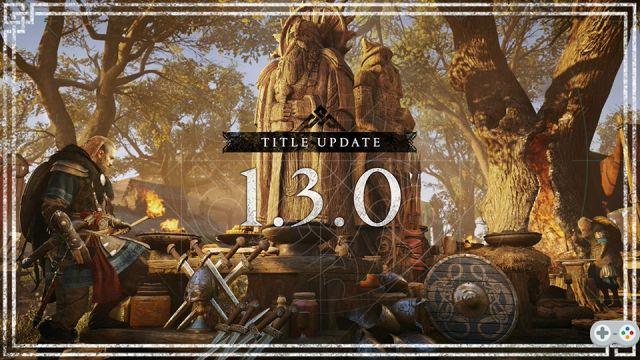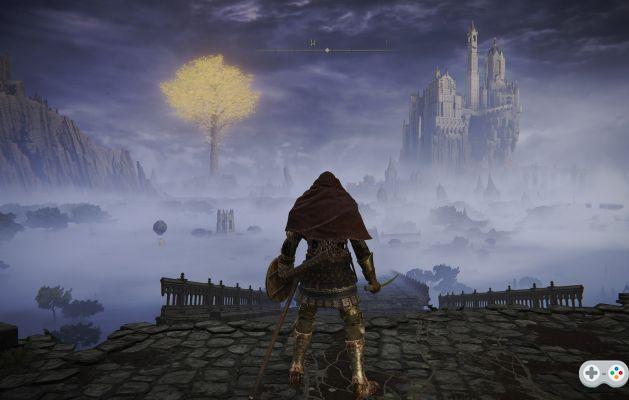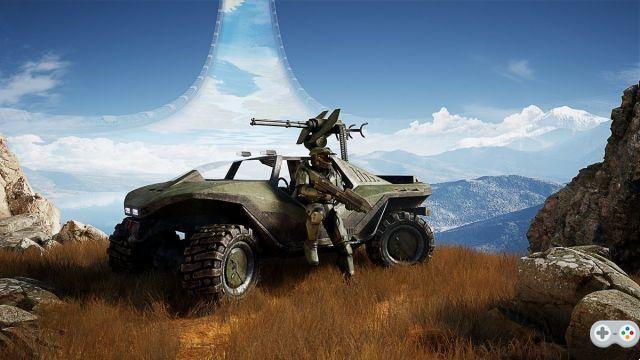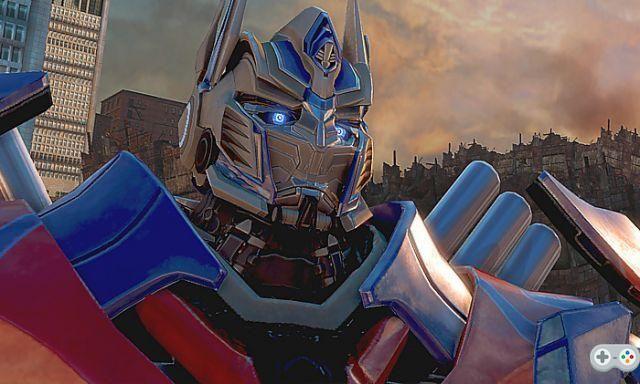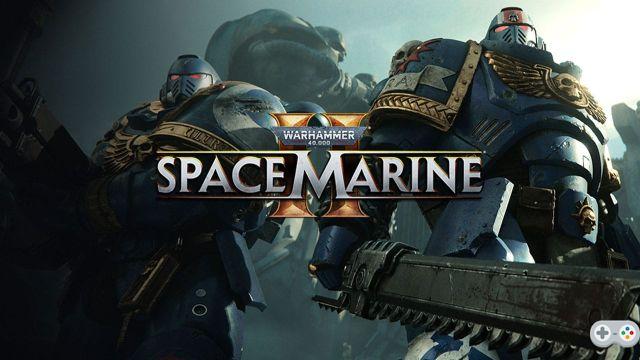
The title of this article will make more than one wince, while a certain cyberpunk 2077 has yet to show us what it's got in store before closing the call for entries for the best game of the year 2020. But after spending more than 45 hours on the latest installment of SEGA's star license, our hearts is still racing for the adventures of Ichiban Kasuga and his band. With this new RPG direction, the series takes a completely amazing direction and Yakuza: Like a Dragon stands out in our eyes as one of the best episodes of the saga, if not the best.
9
 View PriceRead ConclusionYakuza: Like a Dragon
View PriceRead ConclusionYakuza: Like a Dragon
- A perfectly successful fork towards the J-RPG
- Dynamic and strategic combat
- A character development system rich in possibilities
- Tons of activities to happily waste your time on
- ... but which does not avoid some big strings and a certain Manichaeism
- Some small technical problems that persist
- An eccentricity that may displease purists (too bad for them)
- A soundtrack still too ordinary
With 16 games on the clock, the now legendary Yakuza series began to quietly purr. Not to the point of tiring its early fans, far from it, but the game system on which the license has been based since its inception has changed little: exploration, mini- games and other related activities, and especially castagne on every street corner based on quite classic beat them all mechanics.
But with Yakuza: Like a Dragon, the Ryu Ga Gotoku Studio team decided to surprise by making this new opus an RPG in good and due form. And the least we can say is that the formula works so well that we wonder why this decision was not taken sooner!
Back to square one after a stint in prison
Before getting to the heart of this vast subject, a bit of background. Like other games before it (like Judgment released last year on PS4), Yakuza: Like a Dragon gives the starring role to a new protagonist, Ichiban Kasuga. This is not, however, a spin-off, but rather a canonical sequel succeeding the eventful adventures of the emblematic character of the saga, Kazuma Kiryû. The script arc featuring the latter having ended with the sixth episode, this seventh canonical component is therefore a new start for the license.
It's December 31, 2000, and Ichiban is a fiery young yakuza from the Arakawa family, a small clan based in Kamurocho, the fictional Tokyo district well known to fans of the franchise. Born in a "soapland" (a sort of brothel that does not say his name), the young man was taken in by the patriarch of the mafia family, Masumi Arakawa, who took him under his wing and entrusted him with the responsibility of watching over his family. son, Masato Arakawa, stuck in a wheelchair since birth due to leg paralysis.

A tragic event will occur on this New Year's Eve, which will lead Ichiban to take responsibility for a murder he did not commit, to protect the Arakawa family. After 18 years behind bars, our hero discovers that the game has completely changed in Kamurocho and that the patriarch Masato Arakawa has renounced his allegiance to the Tojo clan to join the Omi alliance. And when Ichiban seeks to see him again to understand what happened, the reunion obviously does not go as planned.
We will not say more about the scenario of this seventh installment of the main series, but know that after this prologue in Kamurocho, the bulk of the adventure will take us to Yokohama, in the district of Isezaki Ijincho where Ichiban will fail between Life and death. There, he will have to rebuild his life from the bottom of the social ladder and find a place for himself in this city he does not know, without forgetting of course to shed light on the events that occurred in Kamurocho. A story that unfolds over 45 hours of play just for the main quest, and gives pride of place to twists and machinations galore, in the purest tradition of the series, until a denouement summons all the forces. in the presence.
This will obviously be an opportunity for the Ryu ga Gotoku Studio to once again take a critical look at Japanese society, and benevolent at those who survive on its margins – the downgraded, the magnificent losers. And if the subject may sometimes seem a little Manichean, it has the merit of giving the good role to those who, in reality, are always singled out as lazy and harmful. A statement that is based on a gallery of characters, each more endearing than the other and who, for some, will accompany Ichiban in his heroic quest.

We will thus long remember the magnificent characters of Nanba, homeless ostracized from society, and Adachi, an old cop deprived of his retirement pension for having put his nose where it should not. If all the playable characters of the adventure obviously have this little something that makes them endearing, the starting trio really constitutes the hard core and their unlikely association the starting point of this crazy adventure. Note all the same that two female characters will join the band and, in the world a little too “manly” of Yakuza, it is a step forward – certainly shy, but a step forward all the same. However, we would have liked their roles to be less stereotyped and more assertive. Come on, one more effort!
Like a Dragon Quest
The explicit parallel between Ichiban's social ascent with all the daily trials it entails and the progression of a J-RPG character runs through the entire game as a kind of nod to the player and meta talk about life. Ichiban is a fan of Dragon Quest and multiplies the comparisons between his own destiny and that of a hero of the famous RPG saga. From the start, Yakuza: Like a Dragon thus plays on this comparison as if to justify the fundamental changes it introduces in the identity of the license.
As in any good self-respecting RPG, Ichiban will cross paths with a number of protagonists who will become his brothers in arms and accompany him in battle. The player therefore finds himself in command of a team of up to four characters and which will add new reservists over the course of the adventure. Everyone can obviously count on a style of their own, which naturally leads us to talk about the combat system of the title.

Yakuza: Like a Dragon relies on a turn-based system as we like them. Four families of actions are thus proposed to us: "Attack", "Abilities", "Parry" and "More" - this last category opening a sub-menu composed of the actions "Objects", "Acolytes" and "Replace". No need to dwell on the attack, the objects or the parry, everyone will have understood what it is. So let's get to the skills.
This is the equivalent of magic in a classic RPG: each character has offensive, defensive and support skills that draw on a dedicated point gauge. These skills are both numerous and formidable, so much so that you quickly end up using more than them, or not far away. The choice of characters (therefore of their abilities) is decisive in the preparation of his team, but fortunately, once the composition of the latter has been decided, nothing is fixed. Because Yakuza: Like a Dragon has the good idea to allow you to swap one character for another during the fight at the cost of an action, via the "Replace" option - so that you are never trapped in the face of a boss whose characteristics put our starting composition in check.
A possibility that therefore has a certain impact on the management of our group. We will thus be keen to rotate the workforce as often as possible, since a character in the team will always gain more experience than outside. Same thing with regard to the equipment, which it will therefore be a question of not neglecting for any of the protagonists. Of course, it is quite possible to favor a team configuration without worrying about the others, but that would be giving up a whole field of possibilities that are particularly advantageous for our progress.
JVFR
But let's get back to "Abilities". In addition to being often very effective, they ensure the show, with their exuberant staging and generally not lacking in humor. We think in particular of Nanba's abilities, such as the one where he throws a handful of seeds at the opponent to attract a swarm of hungry pigeons, or even when he improvises a nap on pieces of cardboard in the middle of a fight to restore his points of life. And examples of this kind are not lacking, although the prize for humor goes unquestionably to this last example.
Question staging, the "Acolytes" also know how to set the mood. This possibility is unlocked quite early in the game and could be compared to summons in a Final Fantasy for example. These are non-playable characters encountered throughout the game that can be summoned in combat via a simple phone call, for an often devastating attack. Fans of the license will thus be happy to find some emblematic figures, which we will obviously be careful not to mention. Note, however, that this help has a price, which can reach exorbitant amounts for the most formidable acolytes.
Life is like a great RPG
So much for the possibilities offered to the player in combat. So between the good old real-time fight system of the previous opuses in the series and this turn-based in the purest tradition of J-RPG, do we gain on the exchange? The answer is a big yes. Contrary to what one might have feared, the fighting does not lose any of its dynamism. It's even quite the opposite: in addition to being visually much more spectacular, they enjoy a formidable efficiency.
No more sequences of blows that end up in the wind for a positioning error in front of the opponent, now all the actions taken really count and have an impact on the progress of the fight. We also appreciate the possibility offered to the player to influence the effectiveness of his attacks and his defense via key commands that will have to be entered with the right timing. What's more, purists will be delighted to learn that the interaction with the sets has been preserved. It is now contextual: if our attack is launched near a bicycle, a traffic cone or a chair, our protagonist will grab it and benefit from a damage bonus. However, the movements are not free, it is not possible to do it deliberately, which is a shame. Similarly, it happens that the movements of the belligerents, allies as enemies, are a bit laborious, the fault of a somewhat hazardous pathfinding.
JVFR
Backed by the combat system, there is of course that of the progression of our characters. The streets are roamed by groups of enemies to defeat to gain experience, but we can also count on dungeons, populated by tougher opponents, which we will have to redo at will to farm gold. experience. A battle arena will also become accessible once you reach the last third of the game in the Sotenbori district of Osaka and will be a great way to level up your group, collect a good amount of money and put the hands on weapons and armor much more formidable than those available in shops.
The room for development of each member of our group is extremely wide, especially thanks to a job system inherited again from the great classics of J-RPG. Indeed, fairly early in the progression opens the possibility of changing jobs by going to the local employment center. The level acquired in a job being decorrelated from the level of the character, changing it does not therefore bring us back to the bottom of the ladder but nevertheless requires coaling to regain all its stripes and renew its equipment since a bodyguard, for example , does not fight with the same weapons as a singer or a martial artist. In return, our repertoire of skills will be considerably expanded, since each job brings new ones as you go up in rank. A professional retraining that we will therefore consider more willingly once well advanced in the game to quickly gain in level.
JVFR
Each member of the group can also count on a certain number of secondary characteristics, traits of his personality that it will again be a question of making progress. This involves certain choices made during dialogues, interactions that we will choose to have with the other members of the group - in particular by discussing over a drink, by sharing a meal, by indulging in one of the many activities annexes, or by agreeing to help local residents. Whether it's "Passion", "Self-confidence" or "Kindness", these personality traits have an impact on the effectiveness of certain skills and are therefore not to be neglected. Finally, the cohesion of the group, symbolized by the "Friendship" gauge, will also have an impact, for example on the coefficient of experience gained outside the team or by sometimes triggering an automatic and free attack on an opponent on the ground. .
The art of never getting bored
In short, on the human side, one could say, there is a lot to do to progress and enough ways to do it to never get bored. Moreover, we have not even spoken yet of the very many fun activities which it is possible to indulge in during our free time: the great classics are obviously back, such as Pachinko, arcades, karaoke, golf, shogi or even mah-jong.
There is also a business management activity, this time through the company Ichiban Confections. Hiring, layoffs, acquisitions, sales, employee well-being or more or less risky investments are among the many parameters that must be taken into account before going to face the shareholders' committee at a year-end meeting. A confrontation which also takes the form of a rather well done mini-game, during which we send our best employees to counter-argue against the inquisition of the shareholders. This management activity is thus a really exciting game within the game, since it will even be necessary to meet new employees by walking the streets and thus try to find the best people.
JVFR
The very comfortable financial profits drawn from this activity will allow Ichiban and his acolytes to invest in a laboratory for the manufacture and reinforcement of weapons, called Atelier Romance. This allows the creation of new equipment for affordable sums, but often requiring materials that are difficult to find.
And the list obviously does not end there! Ichiban will quickly be recruited by an on-demand hero service, a kind of Uber of independent vigilantes, on whose behalf he can perform various rescue or delivery missions. A scientist, who is reminiscent of Professor Chen from Pokémon, will even offer him to go and beat up the entire repertoire of enemies in the game (which he has called the Sujimon) to collect data about them in exchange for rewards. We must also mention an activity of collecting used cans on the handlebars of a bicycle equipped with a trailer, a mini-game consisting of watching old classics in a small neighborhood cinema while fighting against sleep so as not to offend the sensitivity of the boss, or even a kind of life-size Mario Kart in the middle of the city, as we have found elsewhere in Tokyo for a few years.
And this list is not exhaustive. The title shows a crazy generosity, and this abundance of activities of all kinds really makes you want to stay a long time in its universe. A density that largely compensates for the very modest surface area of the playing area, and which allows Ryu ga Gotoku Studio to offer an RPG with such a long duration (70 to 80 hours of play at sight of the nose) for whoever would like to browse it In fro and through.
The Dragon Engine and its limits
Generous, exciting, funny, touching…. We are full of praise for this seventh installment in the saga. Is there really nothing to reproach him for? If we had to look for lice, we would say that the technique is, as often in the history of the license, marred by a few faults which may upset some. Nothing calamitous, but wanderings that are a bit of a task in 2020. If the cut-scenes are absolutely splendid thanks to characters displaying faces and expressiveness that are crying out for realism, there are however some small technical errors during our walks in town. .
JVFR
Starting with fairly frequent display delays, a rather weak level of detail, animations that lack a bit of variety or occasional framerate drops when the game loads certain surrounding game areas, or even during certain attacks. But on PC, apart from these occasional drops, the framerate is relatively stable at around 60 fps on our configuration (i7 7820X, 32GB of RAM and GTX 1080Ti). Note that a day one patch has greatly streamlined the game and the many slowdowns observed during our test are, for many, nothing more than a bad memory.
The Dragon Engine is therefore showing its limits, and there is no doubt that with the new generation of consoles and graphics cards whose arrival is imminent, Ryu ga Gotoku Studio will have its work cut out for it to rise to the level of current standards and coming. But for now, and as often when a game bewitches us, we will be lenient in the face of these few technical shortcomings, all in all quite negligible. Finally, let's end by saluting the excellent acting of the Japanese dubbing actors, a habit for the series which has always surrounded itself with very great voices. Too bad on the other hand that on the musical side, the compositions are a little too generic, apart from some beautiful very catchy pieces.
JVFR
Yakuza: Like a Dragon : l'avis de Clubic
There were things to say about this Yakuza: Like a Dragon! And yet we have omitted one, and not the least: it is perhaps obvious, but to really appreciate this title, as for all its predecessors, it is absolutely necessary to have a very particular sympathy for Japan, its pop culture and the romantic figure of the yakuza. Additional condition concerning this opus: above all not to be resistant to turn-based and all the mechanics on which the J-RPG is based.
If you meet these two prerequisites, then go for it! Yakuza: Like a Dragon is a thunderous new start for the saga and its branching off into the J-RPG is a wise choice. By going to draw from the best recipes of the genre, Ryu ga Gotoku Studio forges a very rich game system, guaranteeing many hours of play and this despite a classicism which, on paper, could have made fear a purely formal development. However, the fights gain in dynamism thanks to the plurality of the aptitudes of each member of the group, and to the visual inventiveness of which the title shows to stage them. The strategic dimension of this system thus works wonders, and the possibility of swapping one character for another during combat has a lot to do with it.
The possibilities for the evolution of our group of characters are really very vast, whether individual or collective, and there is so much equipment to find or craft, activities to invest in, secrets to discover. , that once launched it is really difficult to put down the joystick. And that's without even talking about the main quest which, if it doesn't always avoid the big strings, deploys a very well-crafted story, rich in twists and turns, with a critical and touching comment on Japanese society. contemporary. If it is much more wacky and exuberant than its predecessors, Yakuza: Like a Dragon does not sacrifice any of its taste for broken faces and intrigues with sprawling ramifications. And for all this and so many other qualities, we will forgive the title for its few technical wanderings as its generosity is great.
Yakuza: Like a Dragon9
If the good old turn-based mechanics don't scare you and you feel a certain affection for Japan and its pop-culture, we can't advise you enough to throw yourself into this superb adventure.Most
- A perfectly successful fork towards the J-RPG
- Dynamic and strategic combat
- A character development system rich in possibilities
- Tons of activities to happily waste your time on
- Lots of secrets to unearth
- Very endearing protagonists served by talented actors
- A main quest deploying an exciting scenario...
The lessers
- ... but which does not avoid some big strings and a certain Manichaeism
- Some small technical problems that persist
- An eccentricity that may displease purists (too bad for them)
- A soundtrack still too ordinary




